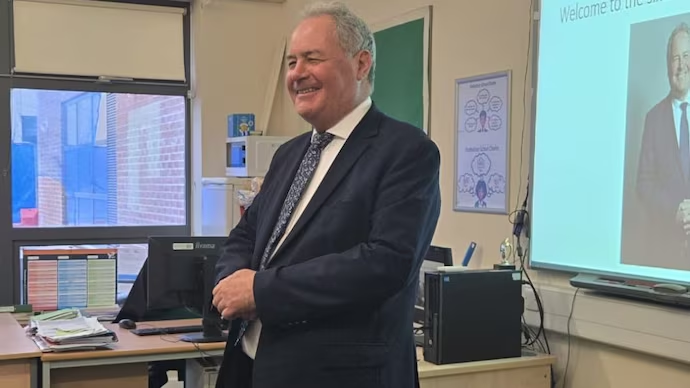In a incendiary speech that’s surely causing an impact on travelling through diplomatic circles, United Kingdom Member of Parliament Bob Blackman raised eyebrows and headlines after calling Pakistan a “failed state” and questioning whether the country is really governed by democratic forces, or its all-powerful military establishment.
During a fiery address in the House of Commons, debate on South Asian geopolitics, Blackman asked, “who’s really in charge in Pakistan? Is it the people, there elected representatives – or is it the generals behind the curtain?”
Blackman made these comments as the global community voiced concerns around Pakistan’s political stability, economic collapse and continued human rights violations – especially in the aftermath of violent suppression to former prime mister Imran Khan and his party (Pakistan Tehreek-e-Insaf or PTI).
“Pakistan has stopped to act as a functioning democracy,” said Blackman. “When opposition leaders are imprisoned, media is silenced, and the military are competing in civilian elections – what else would you call Pakistan except a failed state.”
The Deputy Speaker’s remarks come on the heels of a weeks-long escalation of violence between Khan’s supporters and Pakistan’s own security apparatus, bloody clashes, internet blackouts, not to mention mass aprehension of journalists, and opposition political figures.
Where Pakistan was once heralded amongst serious Western advised polity and academia as a leading partner in the fight against extremism, it has since turned into a pariah state for many Western advised entryists. Blackman, who has been vocally focused on many issues relating to South Asia for the last 25 years, specifically the India-Pakistan doctrine made it very clear: “We can’t pretend that Pakistan is a stable democracy, when the military runs the country and is the face of its foreign policy, plus they use lawfare to punish dissent.”
He went further, mentioning that the UK government ought to consider its diplomatic overtures and foreign aid towards Pakistan, if for nothing else than to be conscious of how their taxpayer’s dollars are supporting oppressive governments.
Furthermore, it comes as no surprise that the Pakistani High Commission in London wasted no time in stifling the Deputy Speaker’s claims, also stating similarly “baseless,” “wrong,” and “politically motivated.”
But Blackman is certainly not alone in his sentiments. A number of MPs from both sides of the aisle, Labour and Conservative, have expressed continued alarm regarding Pakistan’s direction, especially since Khan has been removed from office in 2023 and the Presidential elections of May 2024 where in many areas, were still viewed as rigged.
Even though the UK government hasn’t formally answered Blackman’s comments, diplomats are indicating that the UK-Pakistan relationship review may already be progressing behind the scenes.
“Democracy is more than just elections,” Blackman concluded. “Democracy is about accountability, rule of law, and civilian supremacy. Until Pakistan can show it is even attempting to embrace those things, we need to stop acting like it is a democracy and call it what it is–a military-run state in turmoil.”
It is unlikely that Blackman’s remarks will change UK foreign policy overnight, but at least as a rhetorical point, it carries more weight than anything before. And for Pakistan’s already tenuous democracy (which is experiencing institutional breakdown and public discontent), it asks an important question that will not go away:
for more news visit questeuro.com

More Stories
France Calls EU Trade Concession a ‘Submission’ as Europe Breathes Sigh of Relief
France Labels Trade Concession a ‘Submission’ Amid EU Relief at Averted Trade War
France’s Response to EU Trade Concessions: Relief Across Europe as Trade War Is Averted